Isra and Mi'raj: The Great Miracles of the Prophet ﷺ
On the 27th of Rajab, Muslims commemorate the event of Al-Isra and al-Mi'rāj, the Prophet's night journey from Mecca to Jerusalem. This event took place a year before the migration (Hijrah) and has been reported by around twenty-five companions. According to reports, Jibraeel transported the Prophet SAW on Buraq from Masjid-e-Haram to Masjid-Aqsa, where he met some great Prophets SA in different heavens. At the highest place in the heavens, he was received in the audience by Allah ST and received important instructions. He then returned to the Al-Aqsa and then back to Masjid-e-Haram. During this journey, Paradise and Hell were also shown to him. There are different versions of this journey, some believing it was a dream, others in the waking state, and some in a mystic vision.
The word Isra means night journey, the journey that the Prophet ﷺ made during the night from the Haram of Makkah to the area of Baitul Muqaddas is called Isra. The word Mi'raj literally means ladder, ascent, ascension, passage to the pinnacle of dignity, progress, or great means of ascent. Meraj is one of the greatest miracles in the life of the Holy Prophet ﷺ. In Islamic terminology, the night in which the Prophet ﷺ ascended to the heavens in response to the will of Allah Ta'ala and that holy journey is called Shabae Meraj or Lailatul Meraj. Isra and Meraj is one of the best miracles of Prophet Muhammad ﷺ. All that is possible by Allah's will is manifested in the event of Prophet ﷺ's night journey from Isra i.e., Ka’aba to Baytul Muqaddas and Mi'rāj to the seventh heaven.
Despite the distance between the two towns, technology could not have prevented the Prophet SAW from living in Jerusalem during that period. On the other hand, a three-hour jet ride to and from Jerusalem would be required. Angels have the ability to travel faster than light, which might happen in less than ten milliseconds. Before losing consciousness, the average individual can tolerate a force of roughly five Gs. Pilots operating their aircraft at roughly nine Gs can do so while donning high-G suits. Astronauts no longer have the same sense of speed as passengers on a commercial aircraft, even in space shuttles. The Apollo 10 astronauts set a new human speed record; the Prophet SAW would have needed roughly four minutes to travel back from Mecca to Jerusalem. The Prophet SAW could have completed the journey in under five minutes if Jibraeel AS had given him a lift. The trip might have been completed more quickly and effectively if the angels and the Prophet SAW traveled at their respective speeds.
Time for a Return Trip from Mecca to Jerusalem[1]
|
Mode of Transportation |
Miles/hr |
Time |
|
|
Humans |
5 |
13 |
days |
|
Race Horse |
40 |
39 |
hours |
|
Fastest Train |
186 |
8.3 |
hours |
|
Race Cars |
250 |
6.2 |
hours |
|
Jet Airliners |
530 |
2.9 |
hours |
|
Concord Jet |
1,550 |
60 |
minutes |
|
Combat Aircraft |
2,000 |
46 |
minutes |
|
Space Shuttle |
17,500 |
5.3 |
minutes |
|
Rocket |
25,000 |
3.7 |
minutes |
|
Light |
670,000,000 |
8.3 |
millisecond |
According to history, in the tenth year of Prophethood (620 AD), on the night after Rajab 26 Hijri i.e. 27 Rajab, he first went from Kaaba Sharif to Baitul Muqaddas or Masjid al-Aqsa located in Jerusalem and there he led the congregation of Prophets. After that, he was carried on a special vehicle called Buraq and went to heaven. He met God in Sidratul Muntaha in the upper sky. Angel Gabriel accompanied Prophet Muhammad (PBUH) on this journey until he met Allah. No other Prophet or Messenger could get this great fortune. On this day, Allah Ta'ala called his beloved Habib and made Salat (prayer), the second pillar of Islam, obligatory for Muslims.
Evidence of Isra and Mi'raj:
Many people do not believe in the Mi'rāj incident. For the One who could make Musah (A.S.) cross the sea, save Prophet Ibrahim (A.S.) from Nimrod's fire, and give birth to Jesus (A.S.) without a father in the womb of Maryam, Mi'rāj is only one among his sunan (customs). When the Prophet returned from Mi'rāj and narrated the events, the infidels of Makkah belied him. But Hazrat Abu Bakr (RA) believed in all what he narrated without hesitation. As a result, he became “al-Siddique”.
Regarding the events of Isra and Meraj, Allah Almighty declared in verse 1 of Surah al-Isra’:
سُبْحَـٰنَ ٱلَّذِىٓ أَسْرَىٰ بِعَبْدِهِۦ لَيْلًۭا مِّنَ ٱلْمَسْجِدِ ٱلْحَرَامِ إِلَى ٱلْمَسْجِدِ ٱلْأَقْصَا ٱلَّذِى بَـٰرَكْنَا حَوْلَهُۥ لِنُرِيَهُۥ مِنْ ءَايَـٰتِنَآ ۚ إِنَّهُۥ هُوَ ٱلسَّمِيعُ ٱلْبَصِيرُ
“Holy and Glorious is He, Who made His servant travel by night from Masjid Haram to Masjid Aqsa. On whose four sides I have bestowed sufficient blessings that I may show him some signs of goodness. Surely He is the All-Hearer and All-Sewer”. [Al-Isra’:1]
According to the Hadith sources, on the night of 27th Rajab, the Messenger of Allah (peace and blessings of Allah be upon him) was sleeping in the house of Hazrat Umm Hani (رضي الله عنه) after Isha prayer. At that time, Hazrat Jibraeel (عليه السلام) appeared to the Messenger of Allah, peace and blessings be upon him, with a chariot named Buraq and a group of angels from Paradise and said, "O Messenger of Allah! Your Lord has remembered you, you must go there at this very moment.' While going to the presence of Allah with sackcloth, the Messenger of Allah, peace and blessings be upon him, offered two rakat prayers in the palm garden area of Madinah and Mada'in, the birthplace of Hazrat Jesus (عليه السلام).
And the evidence of Mi'rāj is, another verse which says: "Surely he saw him again, near Sidratul Muntaha, near whom is the Paradise of Abiding, when the tree was covered by it, he was not deluded by it, nor did he transgress, surely he observed the great signs of the Lord.” [Surah Nazam 13-18].
Moreover, it has been mentioned in Hadiths, including seven narrations in Bukhari and six narrations in Muslim. For instance, al-Bukhari narrates:
حَدَّثَنَا يَحْيَى بْنُ بُكَيْرٍ، حَدَّثَنَا اللَّيْثُ، عَنْ عُقَيْلٍ، عَنِ ابْنِ شِهَابٍ، حَدَّثَنِي أَبُو سَلَمَةَ بْنُ عَبْدِ الرَّحْمَنِ، سَمِعْتُ جَابِرَ بْنَ عَبْدِ اللَّهِ ـ رضى الله عنهما ـ أَنَّهُ سَمِعَ رَسُولَ اللَّهِ صلى الله عليه وسلم يَقُولُ " لَمَّا كَذَّبَنِي قُرَيْشٌ قُمْتُ فِي الْحِجْرِ، فَجَلاَ اللَّهُ لِي بَيْتَ الْمَقْدِسِ، فَطَفِقْتُ أُخْبِرُهُمْ عَنْ آيَاتِهِ وَأَنَا أَنْظُرُ إِلَيْهِ ".
Narrated Jabir bin `Abdullah: “That he heard Allah's Messenger (ﷺ) saying, "When the people of Quraish did not believe me (i.e. the story of my Night Journey), I stood up in Al-Hijr and Allah displayed Jerusalem in front of me, and I began describing it to them while I was looking at it.”[2]
Background and Reasons for Isra and Mi'raj:
While preaching Islam, the chosen religion of Allah, the Prophet ﷺ faced various obstacles from the infidels of Makkah. In the tenth year of Prophethood, one after another, the Messenger of Allah, may God's prayers and peace be upon him, besiege him. Abu Taleb, the Prophet's uncle, died; The one who kept the Messenger of Allah (peace and blessings of Allah be upon him) under his watch all the time despite being a disbeliever. During his lifetime, no one would have been able to do him any harm. But after his death, the infidels became very careless. After some time, Umm al-Mu'minin Khadija, the wonderful life partner of the Messenger of Allah, may Allah bless him and grant him peace, also died.
After their death, the Prophet (peace and blessings of Allah be upon him) felt helpless. He presented himself to the various chiefs and said, "Who will shelter me so that I may preach the word of my Lord?" But no one answered his call. Fed up with the cruel torture and ill-treatment of the people of Makkah, he went to Taif. There he expressed the same to the chiefs of Taif. None of them heeded his words. Furthermore, they incited wicked children against him, they pelted stones against him. He returned to Makkah.
In such a situation Allah gave the good news to Shanuh Tina that, O Prophet! If the people of the world don't respect you, don't give you dignity, it doesn't matter. You are my dear Habib, I will bring you to my throne when you lose your dignity in the dust. So, Allah, the Exalted, called His beloved Habib to Himself on Arshe Mu'alla to comfort him. Almighty Allah wanted to honor him. He honored him with rare honors like Isra and Mi'raj.
But this was not the only purpose of Mi'rāj; it was wider than that. Allah Ta'ala says, "It means that I will show him some signs of My power." [Surah al-Isra’: 1]
Other Narrations
Before migration. One night the Messenger of Allah ﷺ slept. Drowsy, bleary-eyed. But the heart and mind were awake. In the meantime, Hazrat Jibraeel (a.s.) arrived. He picked up the Prophet and took him to Zamzam. A golden cup was brought. It was full of faith and wisdom; Zamzam water in it. Jibraeel (peace be upon him) took him to Zamzam. Then he split open his “شق الصدر” or chest. Then Tina was washed in the water of Yam Yam and put it in the right place again, and then put the chest together.
Then the rider was brought to carry the Prophet. The animal is larger than a donkey, smaller than a horse. The name is Burak. The color is white. It is so fast that every step goes to the limit of vision.
Thus the Prophet ﷺ immediately reached Baitul Muqaddas. Burak is tied by piercing stones. The rock on which other prophets tied their chariots. The Prophet offered two rakat prayers there. Jibraeel (a.s.) presented two cups in front of the Prophet while leaving the prayer. One is milk and the other is wine. The Messenger ﷺ took the cup of milk. Jibraeel (a.s.) said, You have chosen the natural subject (of religion).
As the Prophet took a cup of milk instead of a cup of wine, Gabriel (a.s.) said, "If you had taken a cup of wine, your Ummah would have been confused." (Bukhari, Hadith: 3394)
After that, in the narration of Bukhari, the Messenger of Allah ﷺ was taken towards the sky. There he met Adam in the first sky, Jesus and Yahya in the second sky, Yusuf in the third sky, Idris in the fourth sky, Harun in the fifth sky, Musa in the sixth sky and Ibrahim in the seventh sky. There he found Baitul Ma'mur. There he was given three types of drinks namely milk, honey and wine. He preferred milk. Then Jibreel said that you are able to accept normal things. Then he went to Sidratul Muntaha. Then he went so high that he could hear the scratchy sound of pen writing. Then Allah made fifty prayers obligatory on him and his Ummah. Then when Musa (peace be upon him) came to him, he advised the Messenger of Allah (ﷺ) to request Allah to reduce the prayer. First reduced by half, then up to five times. In other narratives, five times each time, after reducing it to ten between narrations, it finally ends with five daily prayers. Then he returned to the world.
Another narration states that buraq is brought at the beginning of the tour. 'Buraq' travels to Baitul Muqaddas. There he led the prophets. Then he was given three kinds of drinks, milk, honey and wine. He preferred milk. Then Jibreel said that you are able to accept normal things. Then when a mi'raj or ladder was lowered for him, he ascended to the sky.
Influence of Isra and Mi'raj:
It is proved through Isra and Mi'raj that the Prophets are all brothers. Their mission is only one, to establish the worship of Allah alone. Through the leadership of the Prophets in Isra and Mi'raj, it is proved that the Shariah received through all the Prophets has come to an end. Now the prophethood of Muhammad (ﷺ) and his law will continue. And his Shariah is the last Shariah. He is the last prophet and messenger. Through this, Almighty Allah wants to prove that even though the people of the world do not respect you, those who are in the sky are accepting you with the highest respect. Even if you are saddened by the actions of people in the world, there are many in the sky to greet you. Above all, the Almighty Allah will not leave you. As a result, the path of emigration was widened, thereby informing that his ummah would be greater than the ummah of Musah (peace be upon him).
Three gifts were given to the Prophet during this visit. The five daily prayers, the last verses of Surah Baqarah, and the announcement of the forgiveness of the sins of those who live and die from shirk of this Ummah. (Muslim, Hadith: 173). Previous prophets met the Prophet ﷺ during this visit. Then he led everyone in prayer. (Muslim, Hadith: 172). During this visit, the Prophet saw a group of people's lips being cut with fiery scissors. He asked, who are they? Jibraeel said, They used to talk, but they themselves did not act. (Musnad Ahmad, Hadith: 12211, 12856)
Conclusion
What we have to do is to be a believer like Abu Bakr. We have to maintain the prayer with the strong belief because, this prayer has been offered with respect by calling the Messenger of Allah ﷺ to the heaven. It has not been made obligatory anywhere in the world or by any other means. The last two verses of Surah Al-Baqarah of the Holy Quran were also given to the Prophet ﷺ on the night of Miraj. It is necessary to read those two verses and propagate them in real life. Also, history testifies that the honor and prestige of the Muslim Ummah lies with the release of Baitul Muqaddas. And we should stand united for that cause during these days of hardship and afflictions upon Muslims, especially the people surrounding Masjid al-Aqsa.
References:
Al-Azharī, Hāfiz Ather Hussain. "The Night of al-Isrā wa’l-Mi’rāj."
Anna'imi, Hamid Majul. "Isra and Mi'raj: The Miracle of Miracles (Readings from History, Physics and Astronomy)." QURANICA-International Journal of Quranic Research 4.1 (2013): 159-186.
Azād, Ghulām Murtaza. "Isra and Mi'raj: night journey and ascension of Allah's apostle Muḥammad (saws)." Islamic Studies 22.2 (1983): 63-80.
Celina, Fitria Mercyta, and Nadi Suprapto. "Study of relativity theory of Einstein: The story of Ashabul Kahf and Isra’Mi’raj." Studies in Philosophy of Science and Education 1.3 (2020): 118-126.
Hadi, Abdul Shakur. Isra'& Mi'raj: Abridged narration of Prophet Muhammad's miraculous Night Journey and Ascent to the Heavens. Qalam Publishing, 2022.
Ibn Ḥajar, Fatḥ al-bārī sharḥ ṣaḥīḥ al-Bukhārī, ed. ʿAbd al-ʿAzīz Bin Bāz and Muḥammad Fu’ād ʿAbd al-Bāqī, 16 vols. (Beirut: Dār al-Kutub al-ʿIlmiyya, 1997), 11:525–27.
Jawaid, M., “Secrets of Angels, Demons, Satan, and the Jinns – Decoding thuier Nature through Quran and Science,” InstantPublisher.com, 2007, Chapter 7, Table 1.
Marwan, Iwan, and Wildan Taufiq. "The Study of Narrative Semiotics in the Story of Isra Mi'raj." Humanus: Jurnal Ilmiah Ilmu-ilmu Humaniora 18.1 (2019): 58-67.
Rahmati, Rahmati. "The Journey of Isra'and Mi'raj In Quran And Science Perspective." Ar-Raniry: International Journal of Islamic Studies 4.2 (2020): 323-336.
Wagner, Walter H. "Journeying to God: Muhammad's Isra and Mi'raj." Cithara 36.2 (1997): 20.
Endnotes
[1] Jawaid, M., “Secrets of Angels, Demons, Satan, and the Jinns – Decoding their Nature through Quran and Science ,” InstantPublisher.com, 2007, Chapter 7, Table 1.
[2] Ṣaḥīḥ al-Bukhārī 3886
About the Author: Mohammad Shekh is a Research Student of Darul Huda Islamic University West Bengal Campus. Interested in History, Current Muslim World, Islamic theology, Ṣūfism, and Islamic History.
Disclaimer
The views expressed in this article are the author’s own and do not necessarily mirror Islamonweb’s editorial stance.

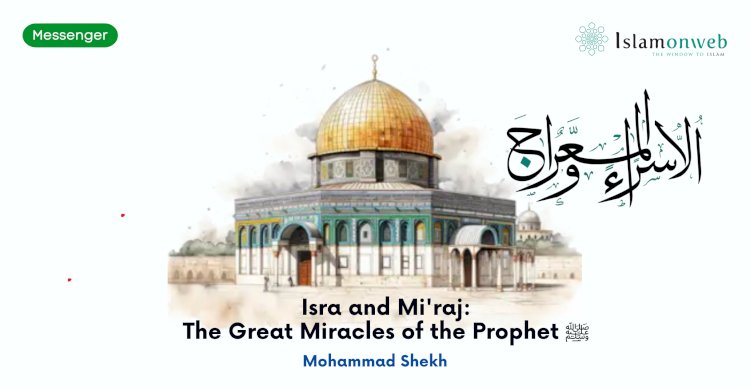


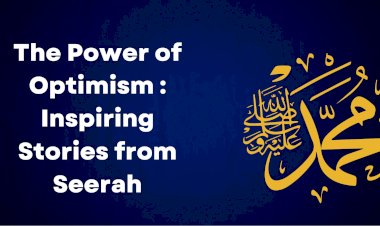
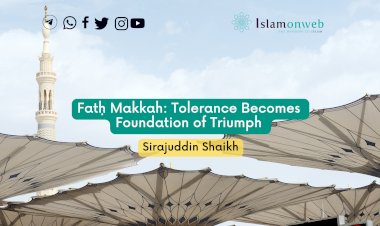
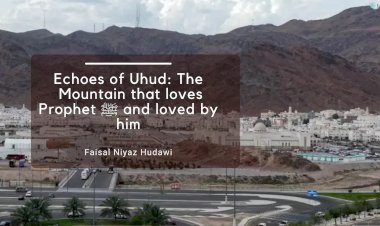
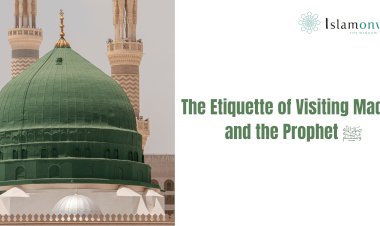
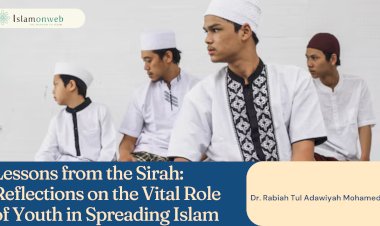














Leave A Comment